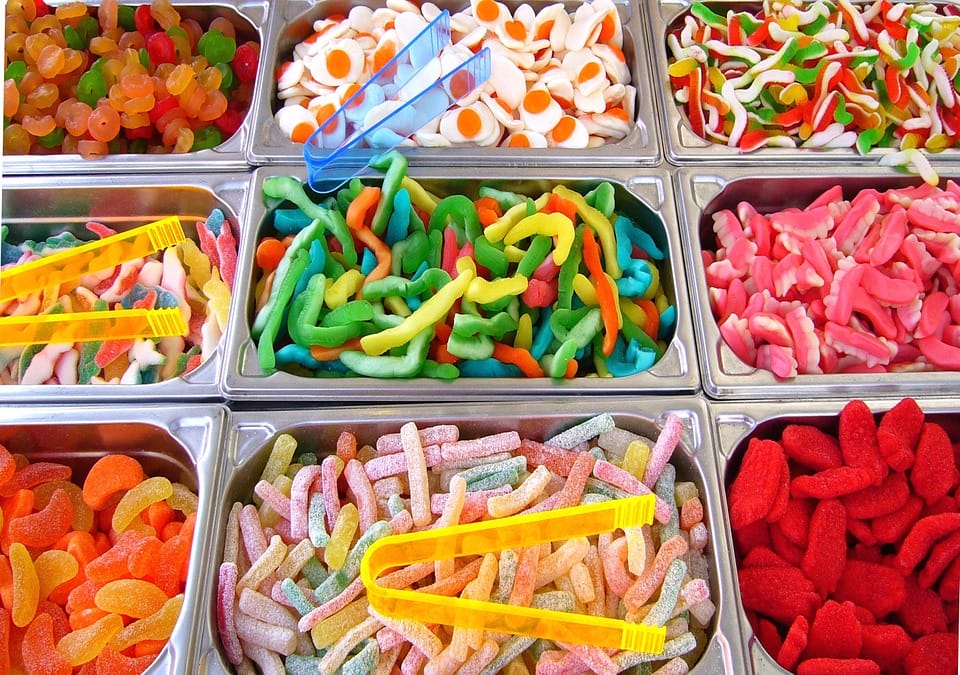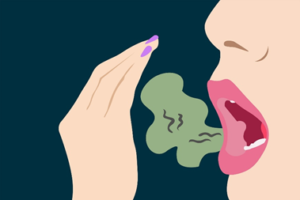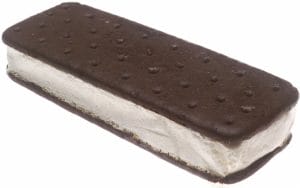Dentist Near Me

We often have visitors to our office ask about solutions for fixing stained teeth or filling in gaps between teeth. We sometimes suggest veneers. Veneers are one cosmetic option available for correcting your smile. Here’s what you should know about veneers, and whether they are right for you and your smile.
What Are Veneers?
A Veneer is a thin cover placed over the front of the tooth. Typically, they are made of dental porcelain and designed to cover your existing tooth, not replace it.
What They Do
Veneers are used to fix a broken or chipped tooth, shrink the noticeable gaps in between teeth, or reduce the visible stains on teeth. Our office specially sizes them to fit your teeth. Generally, the structure of your teeth is not altered since the veneers are placed over your teeth.
What You Need to Know
Those who get veneers sometimes experience a minor increase in sensitivity, particularly to hot or cold food and drinks. Veneers are typically nonreversible, as they often require a small amount of tooth enamel to be removed. After getting them, it is advisable to avoid drinks such as wine, coffee, or tea that are often culprits of causing staining. Taking care of them still requires you to brush twice each day and floss regularly as well. Your teeth are not invincible to staining or decay so be sure to continue to take care of them.
It is important to know that veneers are a solution to minor tooth issues such as discoloration, gaps, or misaligned teeth. They are not a substitute for braces, bridges, or other dental work. Schedule a visit to our office to meet with our dentist. Together our team can work with you to develop a plan to reach the goals and look you are hoping to achieve.
For more information on how to achieve the smile you have dreamed of, contact our office. We look forward to seeing you during your next visit with us!
9501 W Lincoln Highway
Frankfort, IL 60423









 The new year is a time when many consider making positive changes in their lives. Common goals include wanting to lose weight, exercise more, or quit a bad habit. What about vowing to improve your oral health this year? Here’s a few easy changes you can make that will lead to a happier, healthier smile in 2019.
Timing is Everything
Are you a fast brusher? A couple of passes over your teeth is not going to cut it in terms of keeping your teeth strong and clean. Here’s our suggestion for a new year’s resolution: brush for two minutes, twice a day. Start off the new year by trying to brush for the full time. Don’t brush hard because vigorous, fast brushing can lead to lasting gum damage.
Drink Water, Lots of Water
Replace sugary drinks with water this year. Your teeth will benefit from water, as it helps to clean off some of the excess sugar and acids left from food and drinks. Water also assists in saliva production, which is essential for maintaining your teeth’s enamel. Drinking water can also fit into a resolution to lose weight and achieve a healthier lifestyle. Make sure it’s part of your resolution too!
Come See Us
The new year is a good time to schedule your next visit to our office. Keeping up with regular visits helps us to give your teeth a thorough cleaning and examination. Never wait until you think something is wrong with your teeth. Make 2019 the year you keep up with your dental work.
Floss
According to a study by the American Dental Association, only 40% of Americans are flossing daily. Flossing should be a part of your daily oral hygiene routine. We recommend changing your ways in the new year if you are one of the 60% of Americans avoiding dental floss. Flossing is essential for helping limit your decay and for maintaining healthy gums.
With the start of the new year, make a vow to look after your teeth. A few simple changes in your old habits will do a world of good for your teeth in 2019. Allow your good habits to rub off on others this year.
For more advice on keeping your teeth health or to schedule your next visit,
The new year is a time when many consider making positive changes in their lives. Common goals include wanting to lose weight, exercise more, or quit a bad habit. What about vowing to improve your oral health this year? Here’s a few easy changes you can make that will lead to a happier, healthier smile in 2019.
Timing is Everything
Are you a fast brusher? A couple of passes over your teeth is not going to cut it in terms of keeping your teeth strong and clean. Here’s our suggestion for a new year’s resolution: brush for two minutes, twice a day. Start off the new year by trying to brush for the full time. Don’t brush hard because vigorous, fast brushing can lead to lasting gum damage.
Drink Water, Lots of Water
Replace sugary drinks with water this year. Your teeth will benefit from water, as it helps to clean off some of the excess sugar and acids left from food and drinks. Water also assists in saliva production, which is essential for maintaining your teeth’s enamel. Drinking water can also fit into a resolution to lose weight and achieve a healthier lifestyle. Make sure it’s part of your resolution too!
Come See Us
The new year is a good time to schedule your next visit to our office. Keeping up with regular visits helps us to give your teeth a thorough cleaning and examination. Never wait until you think something is wrong with your teeth. Make 2019 the year you keep up with your dental work.
Floss
According to a study by the American Dental Association, only 40% of Americans are flossing daily. Flossing should be a part of your daily oral hygiene routine. We recommend changing your ways in the new year if you are one of the 60% of Americans avoiding dental floss. Flossing is essential for helping limit your decay and for maintaining healthy gums.
With the start of the new year, make a vow to look after your teeth. A few simple changes in your old habits will do a world of good for your teeth in 2019. Allow your good habits to rub off on others this year.
For more advice on keeping your teeth health or to schedule your next visit,  When you travel by plane, your flight attendant will advise that in the rare case of an emergency, you must first put on your air mask before attempting to help those around you. When this is not followed, the results can be catastrophic, both for you and for those you might otherwise have been in a position to assist. While this is crucial information for all, many women particularly require this gentle reminder to prioritize their own needs above those of others.
All too often, we meet women who work tirelessly to fulfill the needs of their families. We see working moms, both at home and in office, who prioritize the health and wellness of their children, spouse and even friends before their own.
We get it: there’s joy and fulfillment in taking care of others. However, it may be time to “put on your oxygen mask” and consider whether you are remembering to care for yourself. Your health, both mental and physical, should be one of your top priorities. This will allow you to have the energy and strength you need to assist with the needs of those around you.
Smile restoration can take years off your appearance, while adding years to your life by improving your health. If you’re looking for a way to jump start your new self-care inclusive way of living,
When you travel by plane, your flight attendant will advise that in the rare case of an emergency, you must first put on your air mask before attempting to help those around you. When this is not followed, the results can be catastrophic, both for you and for those you might otherwise have been in a position to assist. While this is crucial information for all, many women particularly require this gentle reminder to prioritize their own needs above those of others.
All too often, we meet women who work tirelessly to fulfill the needs of their families. We see working moms, both at home and in office, who prioritize the health and wellness of their children, spouse and even friends before their own.
We get it: there’s joy and fulfillment in taking care of others. However, it may be time to “put on your oxygen mask” and consider whether you are remembering to care for yourself. Your health, both mental and physical, should be one of your top priorities. This will allow you to have the energy and strength you need to assist with the needs of those around you.
Smile restoration can take years off your appearance, while adding years to your life by improving your health. If you’re looking for a way to jump start your new self-care inclusive way of living,  Due to the anxiety or embarrassment it can cause, halitosis – or bad breath – can be difficult for many people to face. However, clean-smelling breath may be easier than you think. Try these solutions to overcome halitosis and regain your confidence.
Due to the anxiety or embarrassment it can cause, halitosis – or bad breath – can be difficult for many people to face. However, clean-smelling breath may be easier than you think. Try these solutions to overcome halitosis and regain your confidence.
 What makes teeth sensitive?
If the idea of biting into an ice cream sandwich makes you cringe, you may be one of the millions of people who suffer from sensitive teeth. This is often caused by movement of fluid in the dentin – the soft inner tissue beneath the enamel of your tooth. This motion irritates the tooth nerve, creating a tingling sensation and sometimes pain.
Another common cause of tooth sensitivity occurs when the tiny tubes of fluid in the dentin become exposed. This can happen due to tooth wear, receding gums, or damage to the tooth. When this occurs, pain is triggered by eating or drinking foods that are hot or cold, sweet or acidic, and even through contact or exposure to air.
Whitening and orthodontic treatment may cause temporary teeth sensitivity. In most cases, this type will disappear within a week or two. In severe cases of sensitivity, the tooth nerve itself may be exposed, causing severe pain and irritation and requiring immediate treatment.
What can you do about sensitivity?
If you are suffering from sensitivity in your teeth, tell your hygienist or dentist at your next dental visit. They may need to screen for more serious underlying causes that could need treatment. They will also be able to recommend your best method of managing your discomfort.
Is sensitivity preventable?
Some forms of sensitivity are preventable. Avoid using hard-bristled toothbrushes and do not brush aggressively. This can cause higher levels of wear that lead to sensitivity. If you participate in sports, wear a mouthguard to protect your teeth from trauma. Chipped and cracked teeth often become sensitive.
Once serious underlying issues have been ruled out, you can help to manage mildly sensitive teeth with special toothpastes that are designed to decrease your sensitivity. If these do not provide sufficient relief, ask whether a prescription product may be needed.
If you experience tooth sensitivity,
What makes teeth sensitive?
If the idea of biting into an ice cream sandwich makes you cringe, you may be one of the millions of people who suffer from sensitive teeth. This is often caused by movement of fluid in the dentin – the soft inner tissue beneath the enamel of your tooth. This motion irritates the tooth nerve, creating a tingling sensation and sometimes pain.
Another common cause of tooth sensitivity occurs when the tiny tubes of fluid in the dentin become exposed. This can happen due to tooth wear, receding gums, or damage to the tooth. When this occurs, pain is triggered by eating or drinking foods that are hot or cold, sweet or acidic, and even through contact or exposure to air.
Whitening and orthodontic treatment may cause temporary teeth sensitivity. In most cases, this type will disappear within a week or two. In severe cases of sensitivity, the tooth nerve itself may be exposed, causing severe pain and irritation and requiring immediate treatment.
What can you do about sensitivity?
If you are suffering from sensitivity in your teeth, tell your hygienist or dentist at your next dental visit. They may need to screen for more serious underlying causes that could need treatment. They will also be able to recommend your best method of managing your discomfort.
Is sensitivity preventable?
Some forms of sensitivity are preventable. Avoid using hard-bristled toothbrushes and do not brush aggressively. This can cause higher levels of wear that lead to sensitivity. If you participate in sports, wear a mouthguard to protect your teeth from trauma. Chipped and cracked teeth often become sensitive.
Once serious underlying issues have been ruled out, you can help to manage mildly sensitive teeth with special toothpastes that are designed to decrease your sensitivity. If these do not provide sufficient relief, ask whether a prescription product may be needed.
If you experience tooth sensitivity, 